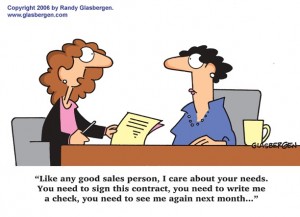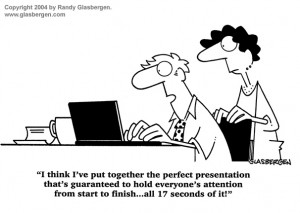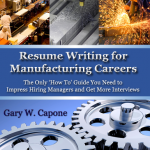 I read a cover letter today that did something I see rarely. It focused on elements that are critical to a recruiter, but usually overlooked by job seekers. A cover letter with a sales pitch for the candidate isn’t unique. What was unique was how the cover letter focused on attributes that a recruiter seeks.
I read a cover letter today that did something I see rarely. It focused on elements that are critical to a recruiter, but usually overlooked by job seekers. A cover letter with a sales pitch for the candidate isn’t unique. What was unique was how the cover letter focused on attributes that a recruiter seeks.
Below are three sentences taken from the cover letter:
I interview well and have appropriate skill sets for large scale operations. I possess excellent verbal and written language skills. My style is articulate while always remaining humble and connected to my audience.
What set this cover letter apart was the mention of the candidate’s interview skills. The experience, skills and accomplishments of a job seeker are important, but this is only a portion of what a recruiter looks for in a candidate. The other component that recruiters want to see in a candidate is the ability of the candidate to sell themselves in an interview.
For a recruiter, it is important that a candidate can articulate their strengths and potential. A candidate with a great resume and terrible interview and communications skills will often be rejected for a candidate that interviews better. Additionally, candidates that interview very poorly can hurt a relationship with a client if the client thinks the recruiter cannot find the best candidates.
This makes it essential to quickly assess the job seeker’s interview skill. The cover letter addresses this with three sentences focused on the candidate’s interview and communications skills. This claim impresses me a lot, but not because the job seeker is a good interviewer.
I read cover letters and resumes every day that make claims about skills and abilities. Some are true while others prove to be exaggerations. There is nothing in the cover letter to convince me the job seeker’s claim of having excellent interview skills is an accurate assessment.
The reason the focus on interview skills impressed me was the job seeker thought about what would be important to me. Many candidates focus on what is important to them. This could be their goals and objectives. It could include specific experiences or accomplishments they are especially proud of. Unfortunately, what is important to a job seeker is not necessarily important to the hiring manager.





